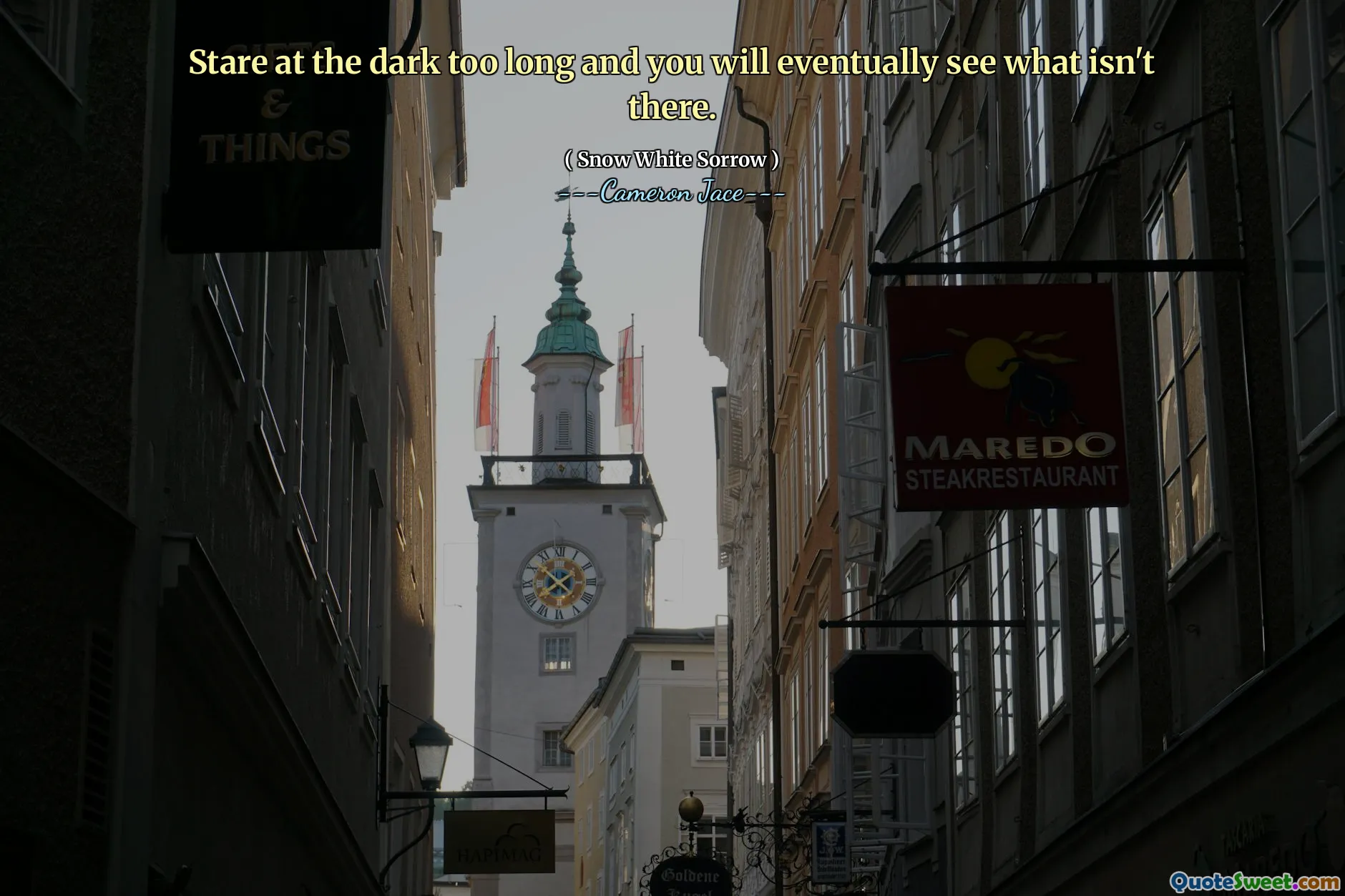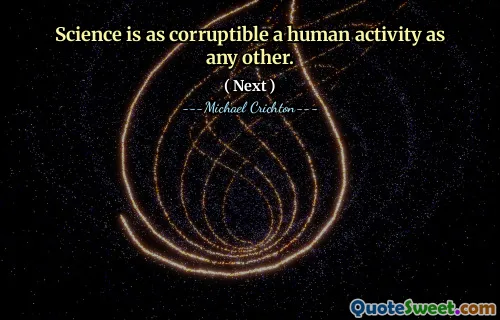
Stare at the dark too long and you will eventually see what isn't there.
This quote from ---Cameron Jace---'s Snow White Sorrow explores the powerful psychological effect that darkness, metaphorically speaking, can have on the human mind. It suggests that when one focuses too intently on negativity, fear, or uncertainty—the 'dark'—the mind begins to construct illusions or false perceptions. Prolonged exposure to difficult circumstances or morbid thoughts doesn't just leave an individual passively affected; instead, it actively transforms their perceptions, leading them to see problems, dangers, or emotions that might not objectively exist.
This taps into the broader idea of how our mental state shapes our reality. In moments of despair or intense focus on the negative, the mind becomes a fertile ground for nightmares, doubts, and anxieties to flourish, even in irrational or exaggerated forms. It serves as a cautionary message about the importance of awareness and balance. Just as staring into literal darkness can blind us, surrendering entirely to emotional or psychological darkness risks distorting our view of the world and ourselves.
Additionally, it underscores the human capacity for imagination—not only as a tool for creativity but also as a potential source of self-deception. The quote encourages readers to be mindful of where they place their focus and to cultivate the ability to lift their gaze from the shadows. By doing so, we can prevent ourselves from becoming trapped in cycles of negativity and instead choose a perspective grounded in reality and hope.
Ultimately, the quote is a reminder of our psychological vulnerabilities and the importance of actively choosing how and where we direct our attention.


